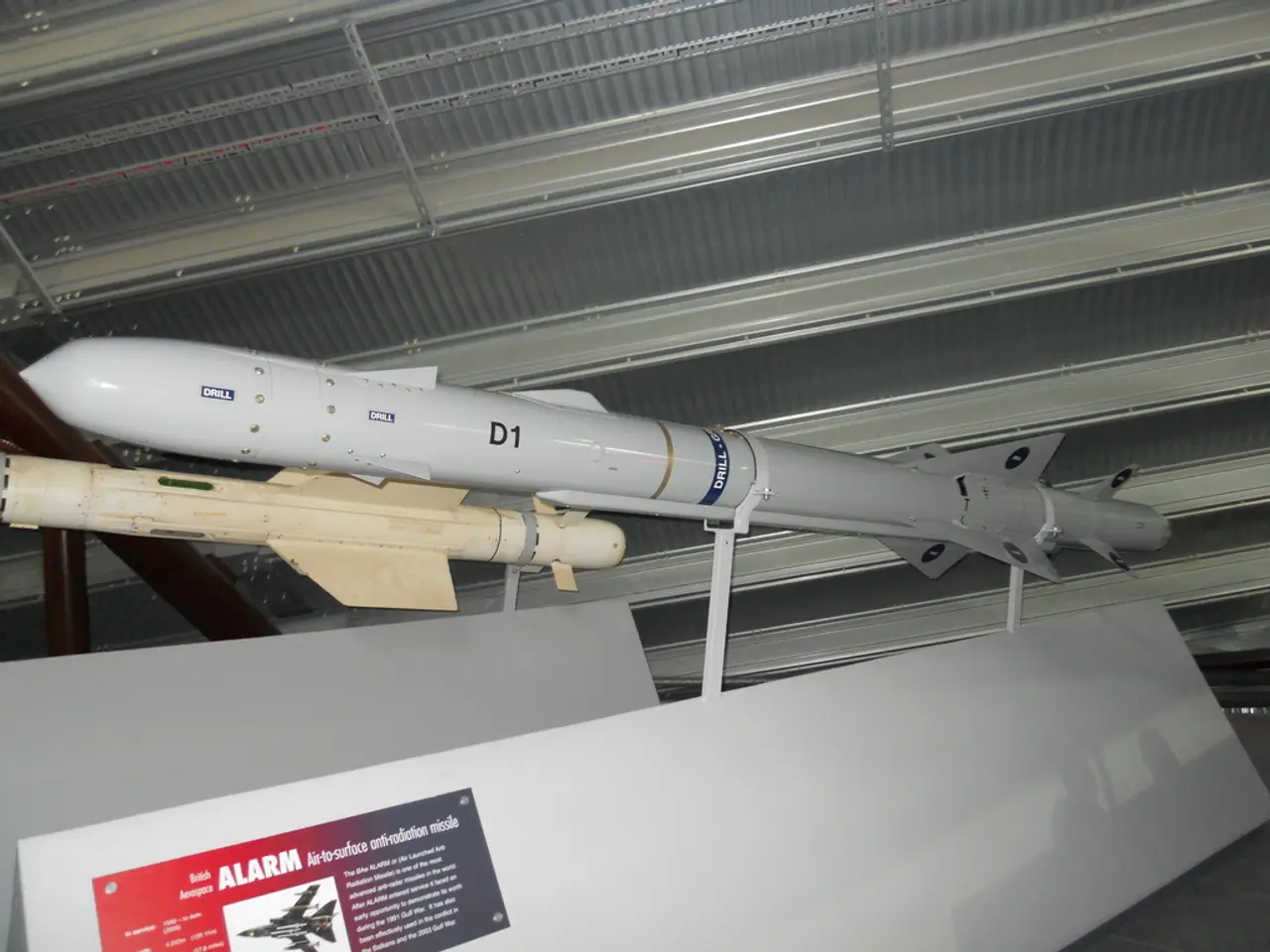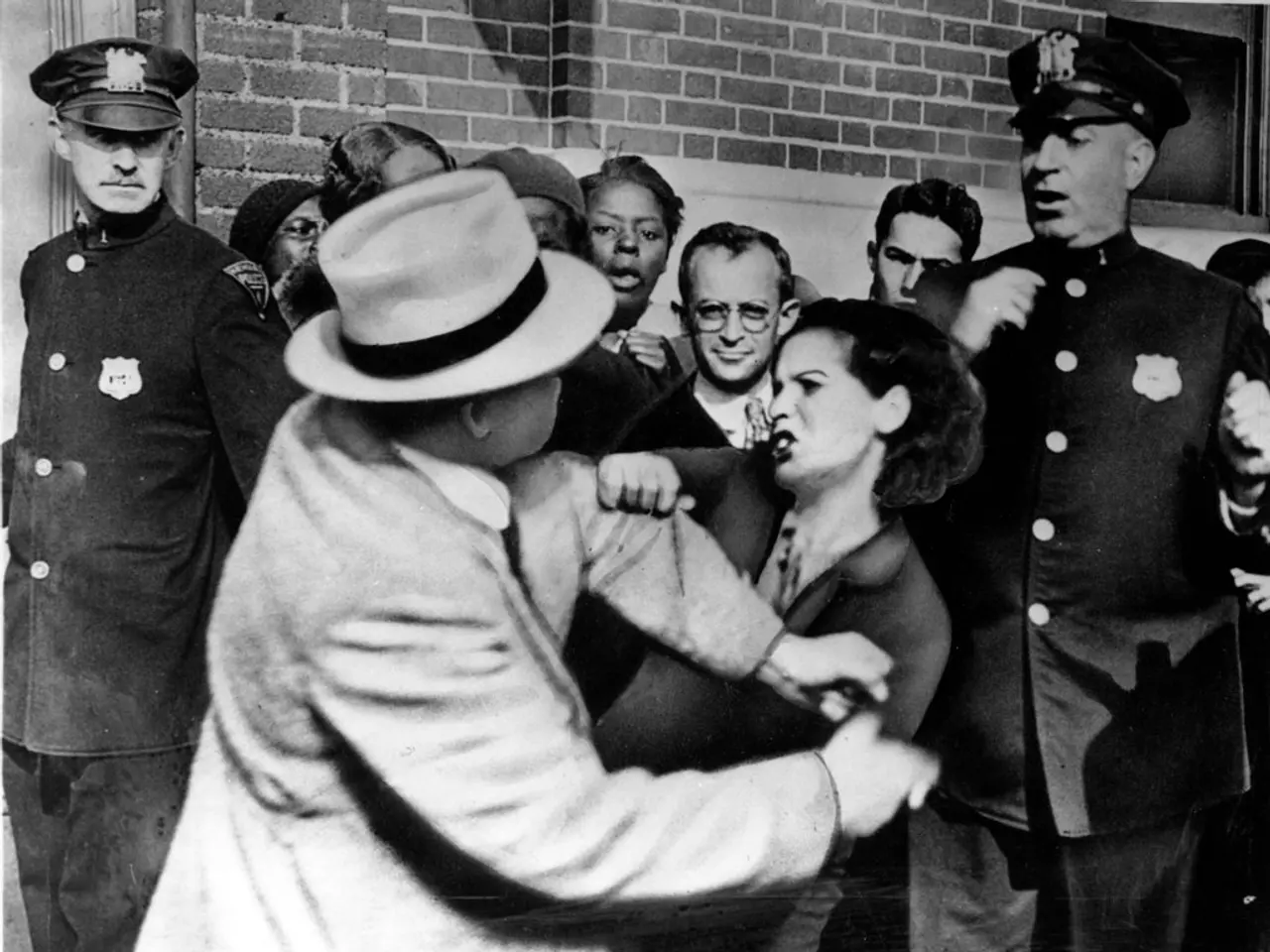Kremlin Allies Downplay Risks Posed by Trump's Warning
In a move that has sparked debate among political and military experts, US President Donald Trump has ordered the deployment of two nuclear submarines near Russia. The submarines, known as SSBNs or "boomers," are capable of striking key Russian targets from nearby international waters, increasing the perceived risk and potentially signaling a close proximity to critical strategic assets.
While some experts view this deployment as a threat, others see it as a defensive, stabilizing maneuver within established norms of nuclear posture. The submarines, which are part of a long-standing US nuclear deterrence strategy, typically patrol in secretive, vast international waters to ensure deterrence through ambiguity.
Military expert Yuri Fyodorov believes that the deployment is a threat, stating that if these submarines take position near Cyprus, nuclear missiles could reach central Russia in ten minutes. He further asserted that even Vladimir Putin in his residence in Novo-Ogaryovo on the outskirts of Moscow would not have enough time to use his nuclear briefcase before his residence is turned into a nuclear crater.
Conversely, other experts, such as former general and Duma deputy Leonid Ivlev, argue that this is not a threat to Russia's security. Duma deputy Viktor Vodolazki agrees, stating that it's pointless to try to scare Russia with the deployment, and suggesting that there is no need to respond to Trump's statements, as his mind often changes.
The Kremlin and former President Dmitri Medvedev, vice-chairman of the national security council, have remained silent about the matter. The foreign ministry has also not addressed the deployment, as stated earlier. This lack of reaction from Russian leadership has been a topic of discussion on the EU-produced Kremlin-critical Russian YouTube channel The Breakfast Show.
The deployment of these submarines has also been the subject of criticism from Kremlin-linked political scientist Sergei Markov, who considers Trump's actions as "stupid and irresponsible." Markov further believes that Trump's actions are meant to distract from his internal political problems, including his role in the investigation of sex offender Jeffrey Epstein.
Russia, however, is aware of the stationing of these US weapons, and has more and better-equipped nuclear submarines in the world's oceans, keeping an eye on the US fleet. In light of this, some experts, such as Fyodorov, argue that the deployment is a threat that requires a response.
Amidst these debates, one thing is clear: an agreement between Moscow and Washington is needed to end all talk of a third world war. The deployment of these nuclear submarines near Russia has further escalated tensions between the two superpowers, and it is crucial for both sides to engage in diplomatic dialogue to prevent any potential misunderstandings from leading to catastrophic consequences.
- This development in war-and-conflicts, with the US President's order to deploy nuclear submarines, has raised significant questions in policy-and-legislation circles, as experts debate whether it is a defensive move or a threat.
- As the debate over the nuclear submarine deployment continues, discussions about policy-and-legislation and potential diplomatic responses are dominating general-news headlines, with many emphasizing the need for an agreement between Moscow and Washington to prevent a third world war.







